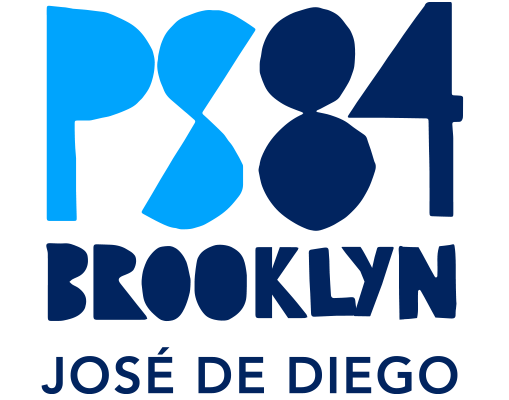Social-emotional Learning
At PS 84 we believe in the importance of developing skills that—while not measured by tests—round out students' education and impact their overall success, self-esteem, relationships, as well as civic and community engagement.
Social-emotional learning provides children with the tools to understand and manage emotions, feel and show empathy for others, establish and maintain positive relationships, and build responsible decision-making skills.
Leader in Me
The Leader in Me program teaches leadership and life skills to students and creates a culture of student empowerment based on the idea that every child can be a leader. The Leader in Me is based on global bestselling self-help book, The Seven Habits of Highly Effective People by Franklin Covey. This approach employs a growth mindset to help both students and teachers develop lasting solutions to daily challenges by identifying and building upon students’ strengths and leadership. The seven core principles of the Leader in Me are:
Habit 1: Habit 1: Be Proactive
Habit 2: Begin With the End in Mind
Habit 3: Put First Things First
Habit 4: Think Win-Win
Habit 5: Seek First to Understand, Then to Be Understood
Habit 6: Synergize
Habit 7: Sharpen the Saw
RULER Approach
A program out of the Yale Center for Emotional Intelligence, The RULER Approach instills empathy and gives students tools to understand and regulate their own emotions. RULER is an evidence-based approach to social and emotional learning (SEL) developed at the Yale Center for Emotional Intelligence. RULER supports entire school communities in:
Understanding the value of emotions
Building the skills of emotional intelligence
Creating and maintaining positive school climates
Restorative Justice
Restorative Justice is an approach to resolving conflict among peers that emphasizes repairing harm, building relationships, and promoting a culture of empathy, rather than focusing solely on punishment. Restorative Justice aims to foster a positive school culture where students feel a sense of belonging and are empowered to resolve conflicts peacefully. At PS 84 we support Restorative Justice through mediation sessions guided by school counselors, our middle school Student Advocate, and/or peers as appropriate based on the nature of the conflict. Restorative Justice practices at PS 84 mirror NYCPS’ Resilient Kids-Safer Schools initiatives.
Positive Behavior Interventions & Supports (PBIS)
At PS 84 we believe that behavior is a form of communication. When students present counterproductive academic or social behavior we strive to determine what underlying needs may be contributing factors and support students through the challenges they’re facing. The goal of Positive Behavior Intervention & Supports (PBIS) is to improve the social, emotional and academic outcomes for all students. At PS 84, PBIS is not a reward system, but a tiered framework for supporting students’ behavioral, academic, social, emotional, and mental health. When implemented with fidelity, PBIS improves social emotional competence, academic success, and school climate.

